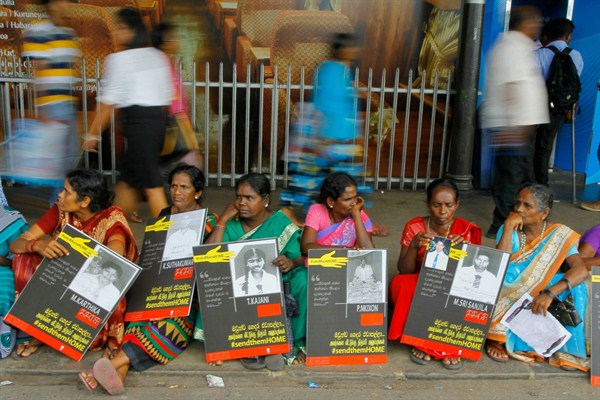JAFFNA, Sri Lanka—More than eight years have passed since Sri Lanka declared the end of its nearly three-decade long civil war. Since then, the small island-nation in the Indian Ocean has made significant progress. The country has remained mostly peaceful; tourists have started arriving in droves; and investors, especially from China, have started pouring billions into Sri Lanka, given its strategic location.
And yet Sri Lanka’s march toward a stable, peaceful and prosperous future is threatened by two closely related problems: its hesitant approach to dealing with the events of the past, and its reluctance to tackle emerging tensions.
In both instances, the difficulties stem from the ethno-religious differences at the heart of much of the country’s politics.

